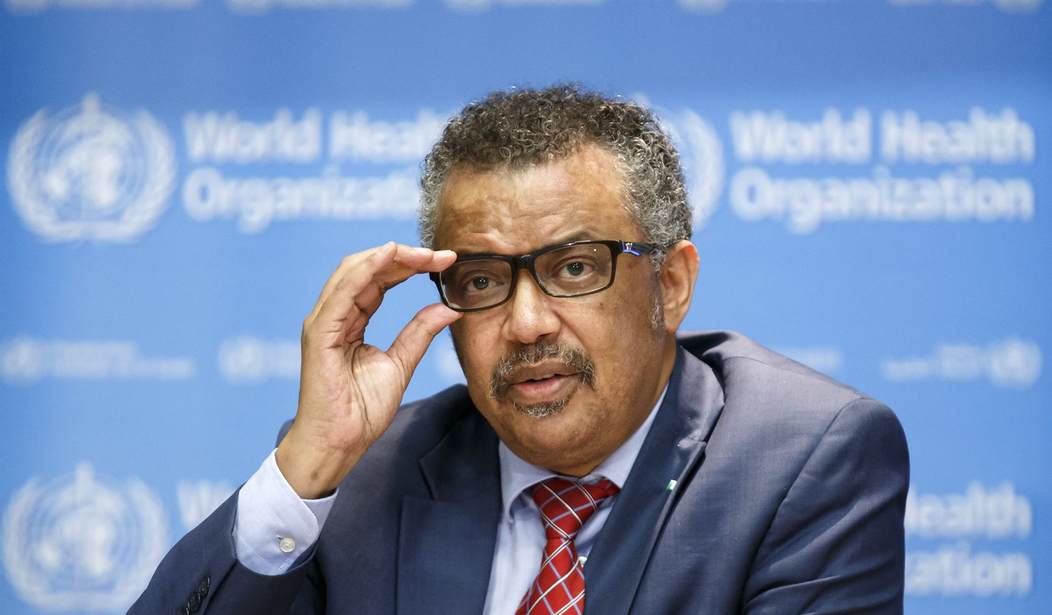PARIS -- "Anything that would go against World Health Organization recommendations would be a violation of our policy," YouTube CEO Susan Wojcicki said in a recent interview with CNN, justifying content censorship on her company's platform.
On Feb. 3, WHO Director General Tedros Adhanom recommended against closing borders to China, saying there was no reason for measures that "unnecessarily interfere with travel and trade."
Four days earlier, Adhanom was advised by the WHO's emergency committee that the situation needed to be classified as a "Public Health Emergency of International Concern." Did the head of the WHO not understand the meaning of the word "international"?
Would Wojcicki have had YouTube censor videos recommending a ban on travel from China simply because it wasn't the official position of the WHO yet?
On April 6, the WHO issued guidelines on the use of masks. "Medical masks should be reserved for health care workers," it advised, suggesting that "the use of medical masks in the community may create a false sense of security." It suggested that the great unwashed would promptly stop washing their hands, or would fondle their faces under the mask. The WHO apparently thinks that unless we work in the health care sector, we're a bunch of dopes.
So the position of the WHO seems to be that masks are useful, but that the average person doesn't deserve one. It would be interesting to see whether YouTube would censor a video that proclaimed: "Hey, guys! I don't work in health care, but I'm not an idiot, either. The WHO says that a fool like me shouldn't have access to a mask, but I bought one on the black market, and I'm here to show you how to use it!" Technically, this person would be violating official WHO guidelines by even possessing a mask, let alone encouraging fellow plebes to use one.
Recommended
According to a WHO brief published last week, "There is currently no evidence that people who have recovered from COVID-19 and have antibodies are protected from a second infection."
But just a day later, the WHO revised that assessment via Twitter: "We expect that most people who are infected with COVID19 will develop an antibody response that will provide some level of protection."
Any daredevils out there want to take a stab at making a YouTube video about antibodies under threat of censorship for countering the WHO's official position -- whatever it happens to be at the moment?
Reflecting on the odd behavior of this prestigious international organization of supranational governance, you might be wondering, "Exactly WHO are these clowns?" Despite its superficial appearance of a neutral entity working for the public good, only 17 percent of its 2018-2019 revenue came from country dues. A whopping 80 percent came from private funding.
Big Tech and Big Pharma appear prominently in the latest available WHO donor database. The Bill & Melinda Gates Foundation, founded by Microsoft's Bill Gates, donated $324.7 million to the WHO in 2017. That makes Gates the second-largest donor to the WHO, including nation-states (right behind the U.S. at $401.1 million).
Just a few days ago, Microsoft and the University of Washington launched a demo version of a contact-tracing app called CovidSafe. Also prominently featured among WHO donors is the Bloomberg Family Foundation ($14.3 million), which has been investing internationally in the development of big data and urban technologies.
How interesting that WHO rhetoric has recently shifted to the concept of a post-lockdown "new normal," which includes the kind of contact-tracing that would involve big data and technology -- at least until there's a vaccine.
And speaking of vaccines, the GAVI Alliance, which promotes access to vaccines, donated $133.4 million to the WHO in 2017. GAVI, in turn, is prominently funded by the Bill & Melinda Gates Foundation.
Other private donors to the WHO include pharmaceutical companies Bayer AG, GlaxoSmithKline, Gilead Sciences Inc., Hoffmann-La Roche and Co., Merck & Co. and Sanofi. Some of these Big Pharma companies have already announced coronavirus vaccine initiatives.
Even Imperial College of Science Technology and Medicine donated nearly $205,000. That institution is now widely known for its coronavirus modeling, which has favored lockdown strategies. It had warned that coronavirus could kill 500,000 people in the U.K. (The current death toll there is just over 21,000).
It seems like the big winners in the coronavirus fiasco are Big Tech and Big Pharma, whose contributions are underpinning the WHO. Our elected leaders cannot allow these private interests to dictate public good.

























Join the conversation as a VIP Member